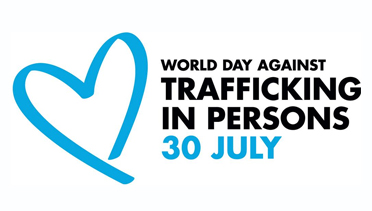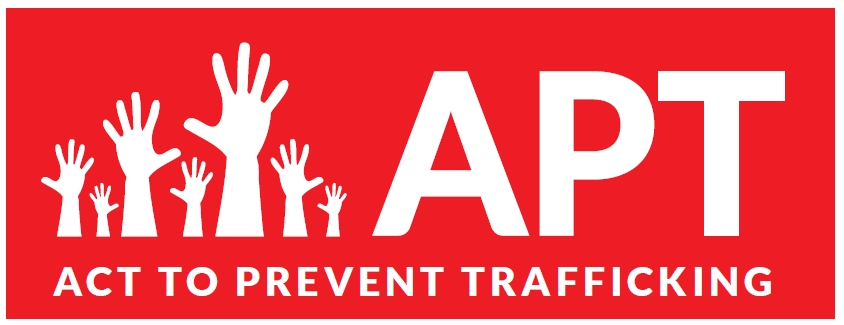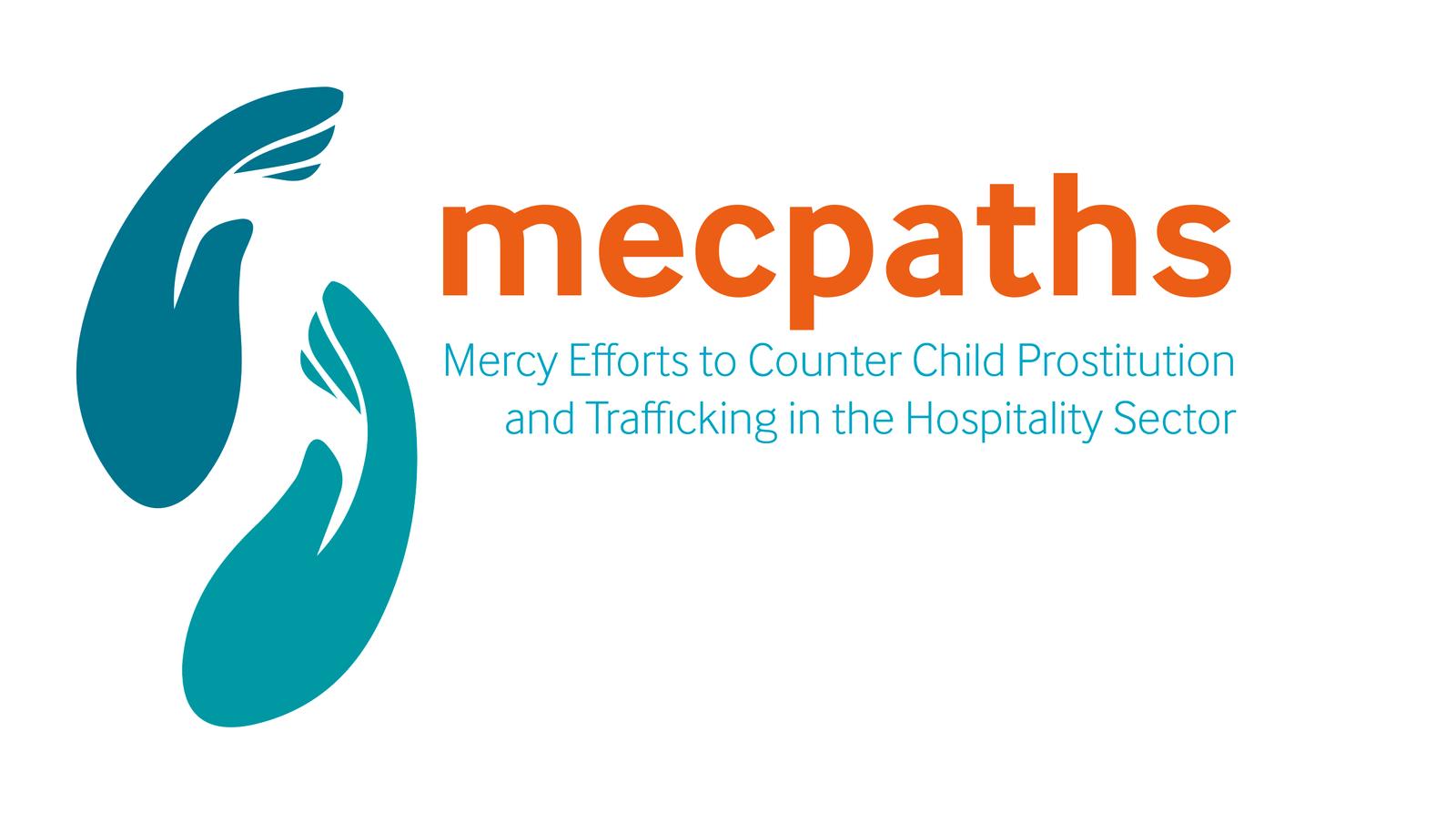Touched by the lives, the joys and suffering of these trafficked women (The Congregation)
July 28, 2015
As the second World Day Against Trafficking in Persons ( 30 July) approaches, my thoughts are raised once again to the all-pervasive global problem of human trafficking and to its severe implications for victims. They are the women, men, and children from every country in the world caught in the web of modern slavery.
 Some are trafficked for forced labour, some for forced marriage, others for organ removal, but the vast majority in Europe are trafficked for sexual exploitation.
Some are trafficked for forced labour, some for forced marriage, others for organ removal, but the vast majority in Europe are trafficked for sexual exploitation.
Due to such high profile days of awareness as World Day Against Trafficking, European Anti-Trafficking Day (October 18th), International Day of Prayer and Awareness Against Trafficking (February 8th), and US Anti-Trafficking Day (January 11th), the issue of human trafficking has received enormous publicity in the past five years. When I began my ministry over ten years ago, there was minimal information and awareness about the topic. When I first started giving presentations to parish groups and university and college students, eyes opened wide and voices exclaimed in disbelief “surely this is not happening in Ireland, it cannot be possible!” Sad to relate, it is and does happen and the problem has penetrated many small towns and rural villages.
My involvement in this ministry began in 2003 when I became an Outreach Volunteer with Ruhama, an NGO which works with women in on-street and indoor prostitution in Dublin. Since 2000, Ruhama also supports women who are trafficked. Through its services it provides counselling, English language classes, personal development, health care, computer training, legal aid, and much more for victims.
In 2005, while continuing my work with Ruhama, a number of us sisters from different congregations came together and formed an NGO called APT (Act to Prevent Trafficking). Many of us, as former teachers, saw the great need to raise awareness through education of young women and men and the general public. Today there are twenty-seven congregations of women and men religious represented in APT. Some retired missionaries offer their specialised skills, expertise, and knowledge of countries and places from which women are trafficked to Ireland, including Africa, China, and Japan, whose cultural backgrounds are so different to ours.
APT’s goals are threefold – to prevent trafficking through awareness raising; to protect victims; and to ensure the prosecution of traffickers. Our work is focused on women and children who are trafficked for the purpose of sexual exploitation. We also do advocacy work on behalf of victims.

In my work over the past ten years I have been to numerous colleges, universities, and secondary schools and I have met thousands of young people. Many, on hearing of the injustice, hardships, the endurance and courage of young victims (many of them younger than themselves) are moved to action in several ways. Some put effort in to promoting Fair Trade in their schools. Others organise cake sales, campaigns, and sports events to provide funds for victims. Some engage in specific research projects to deepen their understanding and knowledge of the different aspects of the issue. In this way, they bring awareness to their whole school, their families, friends, and their wider communities. These young students are so creative, eager, and enthusiastic and it is my hope that with their generosity and goodwill we will one day rid our country of trafficking and traffickers.
As an organisation of women and men religious, APT assisted in founding and developing RENATE (Religious in Europe Networking Against Trafficking and Exploitation). This organisation has connected us to friends and contacts in Eastern and Central Europe where trafficking is so prevalent among the poorest populations in Bosnia, Albania, Slovenia, Moldova, Poland, and Romania. I have met young women from these countries who have been trafficked to Ireland. Due to a very successful fundraising event earlier this year – the Armagh Diocesan Run by Fr. Gerry Campbell – we in APT are now in a position to share resources and support some educational and health projects with RENATE who are now coping with many migrants from Africa in Italy at this time.
When I reflect, as the World Day Against Trafficking impels me to do, I consider what we as a country are doing to prevent trafficking. At the moment, there is a lot of activity among churches, the State, and civil society, all of whom are involved in the issue at various levels.
One cannot overlook the powerful impact of Pope Francis’ interest in this issue. He has engaged the Pontifical Academy of Social Sciences to facilitate greater global collaboration in combating human trafficking. This in turn has urged church leaders from many faith traditions around the globe to get involved, and in December 2014 many came together at the Vatican to sign a pledge to end modern slavery by 2020. A number of the Irish hierarchy have responded by issuing statements of encouragement to the faithful. The Episcopal Commission for Justice and Peace has very recently initiated a training programme with APT for diocesan representatives who in turn will bring this to their parish pastoral councils. Three dioceses – Limerick, Kerry, and Raphoe – are already involved in the process which will be continued with other dioceses in the coming months.
The Irish congregation of Mercy Sisters has initiated an awareness-raising project called MECPATHS (Mercy Efforts to Counter Child Prostitution and Trafficking in the Hospitality Sector). There are twelve Mercy sisters involved with myself as Coordinator and Ruth Kilcullen, the project manager. We visit hotels, speak with managers and human resources personnel about the issue, and share our specially designed awareness-raising programme to alert the various departments, e.g. housekeeping, reception, security, to the signs of trafficking and the reporting procedures to follow should they suspect that a victim of trafficking has been brought to the hotel.

The Irish State is working on several fronts including monitoring the ports of entry through the customs and immigration authorities, providing training to the Garda Siochana (police), and coordinating the anti-trafficking efforts of all government departments through the Department of Justice’s Anti-Human Trafficking Unit (AHTU). The AHTU conducts research, awareness-raising campaigns (e.g. the Blue Blindfold Campaign), and organises national and international conferences. Later this year it will publish its second National Action Plan which will outline the Government’s priorities and plans for combating human trafficking over the next three years.
In the Department of Justice, there is ongoing preparation of new legislation - the Sexual Offences Bill 2014 - which is based on the Nordic Model of criminalising the purchase of sex while decriminalising the seller. This approach, adopted in Sweden over ten years ago and more recently in neighbouring countries, has had much success in decreasing the number of trafficked people, primarily women and girls, exploited in the sex industry. This kind of law signifies an important shift in the way we think about and deal with prostitution, which is inextricably linked to trafficking. The proposed law targets demand, recognising the fundamental power imbalance between the buyer – usually a man – and the seller – most often a woman or girl. The Nordic Model is based on the recognition that the sex trade is a symptom of gender inequality and that prostitution is essentially violence against women. Although the Bill as it stands in controversial in some aspects, its enactment is eagerly anticipated in the current parliamentary term.
The recently published Child Grooming Bill is approaching the final stages of the legislative process and enjoys all party support. This new law will strengthen existing measures to prevent child grooming for sexual exploitation, especially online.
On June 1st 2015, Northern Ireland introduced new legislation based on the Nordic Model. Regrettably, however, evidence shows that this new law has already caused an expansion of the sex trade in the Republic as pimps and traffickers move their business south of the border. This makes it all the more urgent that similar legislation is soon passed here.
The Turn Off the Red Light (TORL) Campaign has been working to secure Nordic Model legislation in Ireland since 2011. This organisation, which has over seventy affiliated groups including trade unions, professional associations, and NGOs, aims to end prostitution and sex trafficking by ending demand. It views the sex trade as a business working on the principle of supply and demand in the market. Where there is no demand, there is no supply. The campaign has a lot of popular support, which is reflected in its large and diverse membership of ordinary citizens, professionals, poets and artists, on whose behalf it carries out much advocacy work.
There is one element of the Government’s response to trafficking that has been widely and justly criticised – the direct provision system. This provides for the accommodation of trafficked people in hotels and hostels alongside asylum seekers and refugees who have different needs. Trafficked women have very little privacy and are often open to abuse and re-trafficking. This unacceptable situation is now under review and hopefully will be reformed to provide specialised accommodation and care to victims of trafficking and their children.
In recent months, we in Ireland have become very aware of the large numbers of refugees, asylum seekers, and trafficked people who try to make the sea voyage from North Africa across the Mediterranean Sea. Since last January, some 1,850 have lost their lives and gone to watery graves in their capsized, unseaworthy, and overcrowded boats. Many have travelled long journeys over land to reach the coast and have paid large sums of money to people-smugglers and traffickers for safe passage. In response to their horrific plight, the Government has sent the Irish Naval Service flagship - LE Eithne – to the rescue. It set out in April on its first humanitarian mission overseas. Since then, it has rescued 3,376 migrants of twenty-one different nationalities.
The above is a broad sketch of the combined efforts of church, state, and civil society to reach out and make a difference to the poorest and most needy who are crying out for help, our brothers and sisters with whom we share 'a common home'.
Many people ask me “how did you get involved in this ministry?” I think I have already answered this question, but many more ask me how or why I stay involved. I continue with this work because this is how I express my Mercy ministry today following in the footsteps of Catherine McAuley. I love this work – “Amor Christi Urget Me” – the love of Christ inspires me. As I was inspired by Catherine McAuley’s love for the poor and her educational philosophy for over thirty years in the classroom, I am now touched by the lives, the joys and suffering of these trafficked women. Their patience and their gratitude for simple things continues to inspire me.
The tenacity of survivors who speak and write of their ordeals and experiences impresses me greatly and gives hope to many others. Rachel Moran, victim turned survivor, has vividly described her life growing up in Dublin in a best-selling book “Paid For” (published by Gill and MacMillan, 2013). Rachel is also a founding member of SPACE International, an organisation which supports survivors, and as such she speaks at many national and international conferences about her experiences and her recommendations for ending sexual exploitation. Others too are ready to speak and share in order to protect other women and girls from the same tragic experiences. In some cases it takes years of rehabilitation, education, and support for women to be able to speak out.
 Though my work as a Befriender with Ruhama has reduced in recent years, my community house is still open as a ‘safe house’ to accept women for short periods of time. Here, the women feel safe and very much at home as they adjust to daily life and learn to cook, to go shopping, to garden, and generally relax in order to overcome their traumatic experiences. For those who do not speak English, it can fun trying to interpret one another!
Though my work as a Befriender with Ruhama has reduced in recent years, my community house is still open as a ‘safe house’ to accept women for short periods of time. Here, the women feel safe and very much at home as they adjust to daily life and learn to cook, to go shopping, to garden, and generally relax in order to overcome their traumatic experiences. For those who do not speak English, it can fun trying to interpret one another!
My connection with Mercy Global Action through our three-monthly teleconferences helps me keep in touch with the global aspect of trafficking. This contact is facilitated by Denise Boyle fmdm, the Director of Mercy Global Action. Denise links the Mercy Sisters working on the issue in New Zealand, Newfoundland, United States, South Africa, the UK, and Ireland. We exchange ideas, share resources, and discuss what is happening in each country in the area of ministry or trafficking. These conversations keep me plugged in to our international network and informed of the work of our sisters in other countries while I face the challenges of human trafficking in my own.
Facts about Human Trafficking
21-30 million people are in slavery today. This is far more than at any other time in history (www.freetheslaves.net)
According to UNICEEF, 2 million children are estimated to be trafficked in to the sex trade each year.
The global average age of a girl forced into the sex trade is 13. In Ireland, 11% of those trafficked here for sexual exploitation are under 18 (Kellegher et al, 2009).
The vast majority – 89% - of women in prostitution want to stop (Farley et al, 2003).
- Mary Ryan rsm, Ireland

